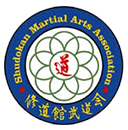Judo: Martial Way or Modern Sport?
By Burklund, RichardThis article first appeared in the Spring 1998 “SMAA Newsletter."
Is judo a sport or budo?
What’s the difference between the two?
The late Mr. Donn Draeger said, "Modern judo is commonly described as a sport, a fighting art, a spiritual discipline, a system of physical education and a recreational activity." Budo and sports have in common regular physical training in specific skills and routines. Sports are designed to provide physical fitness, entertainment and, through competition, the attainment of awards, monetary gain, and/or public acclaim. Budo has as its ultimate goal the perfection of the practitioner's moral and spiritual self.
Mr. Draeger goes on to point out that a true definition of judo is elusive because the narrow interests of a few have been allowed to dominate the scope of judo (1). When people decide to study budo they usually come with several goals in mind. They often want to learn self-defense skills foremost. There is also a desire to improve their health and physical fitness. Finally, there is the desire to improve their mind and spirit. Budo teaches discipline, respect, humility, dignity, and compassion.
There is a clear schism in judo between the sport enthusiasts and the traditionalists. Sport judo today is dedicated primarily to the development of contest champions. The overall goal of championship training produces a very steep pyramid structure to the judo population. Increasingly, only the strongest and most gifted athletes are engaged in regular competition to ascend to the pinnacle of victory. In the pragmatic training necessary for victory in this game, self-defense training and the development of spiritual growth is often neglected.
In 1889, Dr. Kano Jigoro, founder of judo, said, "Judo is the study of techniques with which you may kill if you wish to kill, injure if you wish to injure, subdue if you wish to subdue, and, when attacked, defend yourself" (2). Judo was once widely considered a valid form of self-defense training. This is no longer true. Because it is sometimes thought of as an eccentric form of sport wrestling, many people do not take it seriously as a form of self-defense. This is especially true of the students of other budo. Yet Dr. Kano's statement makes it clear that he considered judo to be effective self-protection. Kano Sensei intended that randori (unrehearsed, free practice) be the primary training method followed closely by kata (rehearsed, formal exercises). Shiai (competition) was clearly last in his priorities (3).
We have defined the problem; now what do we do to solve it? I believe that judo is dynamic, versatile, and expansive enough to serve the needs and interests of all who practice it. I also feel the SMAA is an organization which can re-unite the various factions of judo. This is due to the fact that Todd Sensei and the organization promote the following principles:
- Judo is a martial way (budo) for self-defense and self-perfection.
- The goal of judo training is a well-rounded individual, who has experience and skill in competition, kata, and instruction. We aim to make better people not more champions.
- Advancement is to be based upon:
- Age/maturity.
- Time in service.
- Time in grade.
- Potential for increased responsibility.
- Knowledge/proficiency in common tasks/subjects.
- Demonstration of proficiency in written and "hands on" testing.
Join an Authentic Japanese Martial Arts Organization
In the SMAA Judo Division, competition is an optional means of testing one's physical and technical skills and a method of bringing out the best in oneself. Participation in competition is not required.
To get more details about joining our traditional martial arts organization, call (734) 720-0330 or submit a contact form here.
Notes:
1. Modern Budo and Bujutsu; Donn Draeger; pg. 112.
2. Judo Formal Techniques; Draeger and Otaki; pg. 23.
3. Ibid., pgs. 23-31.

